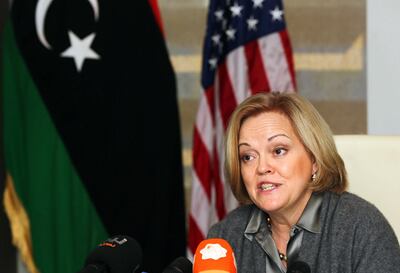The passing of the Emir of Kuwait, Sheikh Sabah Al Ahmad Al Sabah, on Tuesday marked the loss of a beloved national leader, who spent nearly six decades skilfully guiding his country's interactions on the regional and international stage. It also, perhaps, marked the end of an era of Arab leadership, whose strategic vision relied more on collective engagement and inherently incremental consensus building, and drew on the protective umbrella of larger powers.
This was a sensible and viable approach given Kuwait's challenging geopolitical situation – small, wealthy and surrounded by ambitious states – and the inherently intimate nature of Kuwaiti society and its unique social compact between the ruling family and the people, not to mention the added dynamic of a vocal National Assembly. Sheikh Sabah's deft handling of the various elements that might threaten (and in one instance nearly destroyed) the safety, comfort and well-being of his Kuwaiti "family" over so many years led in some ways to a sense of permanence, that his presence and wisdom would be there forever.
Faced with the enormity of their loss, grieving Kuwaitis must now step up to ensure that the things they most cherish about their society endure: the relative openness of their social media and press; the freedom to give voice to their social and political concerns in their renowned diwaniyyas and the National Assembly; the prosperity and generous social welfare state; its outsized international humanitarian role; and the historically progressive nature of this merchant society, with room for religious minorities and its important advances in women's rights. Indeed, this will be the most important means of honouring Sheikh Sabah's legacy.
It has been said that diplomacy is the art of concealing all turbulence behind a smile. If this is the case, then Sheikh Sabah was the master of all diplomats.
Born into a Kuwait decidedly different from the one he left behind, the future Emir witnessed territorial rivalries, impoverishing economic blockades, sudden oil wealth, independence, super-power rivalries, regional wars, an invasion that threatened to destroy Kuwait, terrorist attacks, the creation (at his instigation) of a regional security bloc – the GCC – and its challenges, unwelcome agreements between Kuwait’s allies and hostile neighbours, splits in regional approaches to security, difficult negotiations with important partners on Kuwait detainees, nagging – albeit well-meaning – from my own country on women’s issues and their political inclusion, boisterous – often obstreperous – criticism from the National Assembly.
All this he took in stride, until he didn’t.
Most generally, however, he avoided open conflict and knew well when to either engage in traditional Khaleeji “nose kissing", as a way of conciliation and smoothing things over or, quite literally, to “go fishing” – removing himself entirely from the scene, often in the company of his beloved friend, the late Sultan of Oman, Qaboos bin Said. By nature pragmatic and judicious, Sheikh Sabah was a master consensus builder who made room in the Kuwaiti house for all its family members.
It was my honour and privilege to serve as US ambassador to Kuwait – and the first female in that role – from 2008-11. The Emir welcomed me warmly. Upon arriving in Kuwait, I received a word of wise advice from a Kuwaiti friend: “As the American ambassador, you will be welcomed everywhere, but never forget that you are a guest who must be invited.” In fact, I never experienced more literally the words “ahlan wa sahlan” (“now you are as family in a place that is smooth”). If not a blood relative, I certainly came to feel I was an adopted child.
I grew to love Kuwait and the deep sense of Kuwait identity, strengthened even further in the crucible of the Iraqi invasion, as well as the machbous and the pickles. I had first visited Kuwait in 1984, making a shopping visit from war-torn Baghdad, where I was then assigned; it delighted me to find the traditional souk still thriving alongside world-class shopping malls, with a lively art scene and young people animatedly engaged in the universities. And of course, observing sessions of the National Assembly and Kuwait’s raucous elections, as well as enjoying what was then the unique privilege as a woman of engaging with the many diwanniyas, were experiences I shall never forget. It also gave me equal pleasure to learn that Sheikh Sabah also loved to spend time at his vacation home outside of New York City, where he often did his own grocery shopping and enjoyed cooking for his friends.

The US and Kuwait enjoy a close relationship, forged in the 1991 liberation, but it is not without its challenges.
I have often quipped that being friends with the US is in some ways like inviting an elephant to be your house guest: there are, of course, the clear assets of strength, security and loyalty, but the care and feeding can create unique demands. Sheikh Sabah fully understood that Kuwait’s vulnerability lay in its geopolitical setting, and its strength in coalition and partnership; his was the hand that guided the creation of the GCC in 1981, following the 1979 Iranian revolution, and he worked tirelessly to preserve it throughout his life. He was also among the first to reach out to a post-Saddam Hussein Iraq to discuss resolving boundary disputes and reviving its economy.
Finding new avenues for buttressing Kuwait’s security and prosperity will remain a principal task of those who follow in Sheikh Sabah’s footsteps. Meanwhile, as Kuwaitis – and others – look back on his life and legacy, it should serve as both guide and goad for them to recommit to advancing his vision of a society that is prosperous and generous, open and respectful of its institutions and leaders, tolerant, progressive and inclusive, and committed to dialogue over division, no matter how difficult.
His example is one from which all of us can learn.
Deborah Jones was the US ambassador to Kuwait from 2008 to 2011. She is currently chairwoman of the board at Amideast




